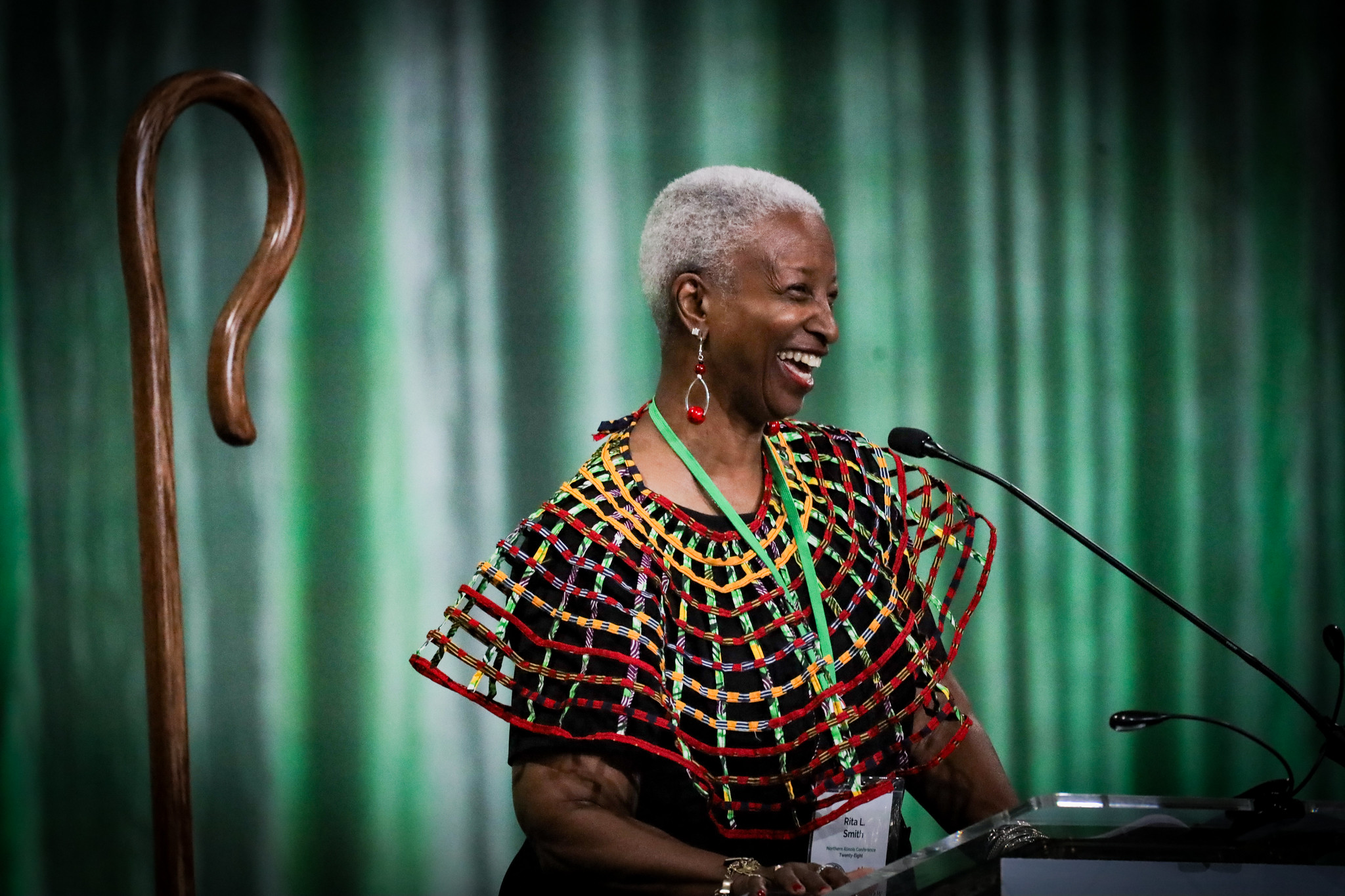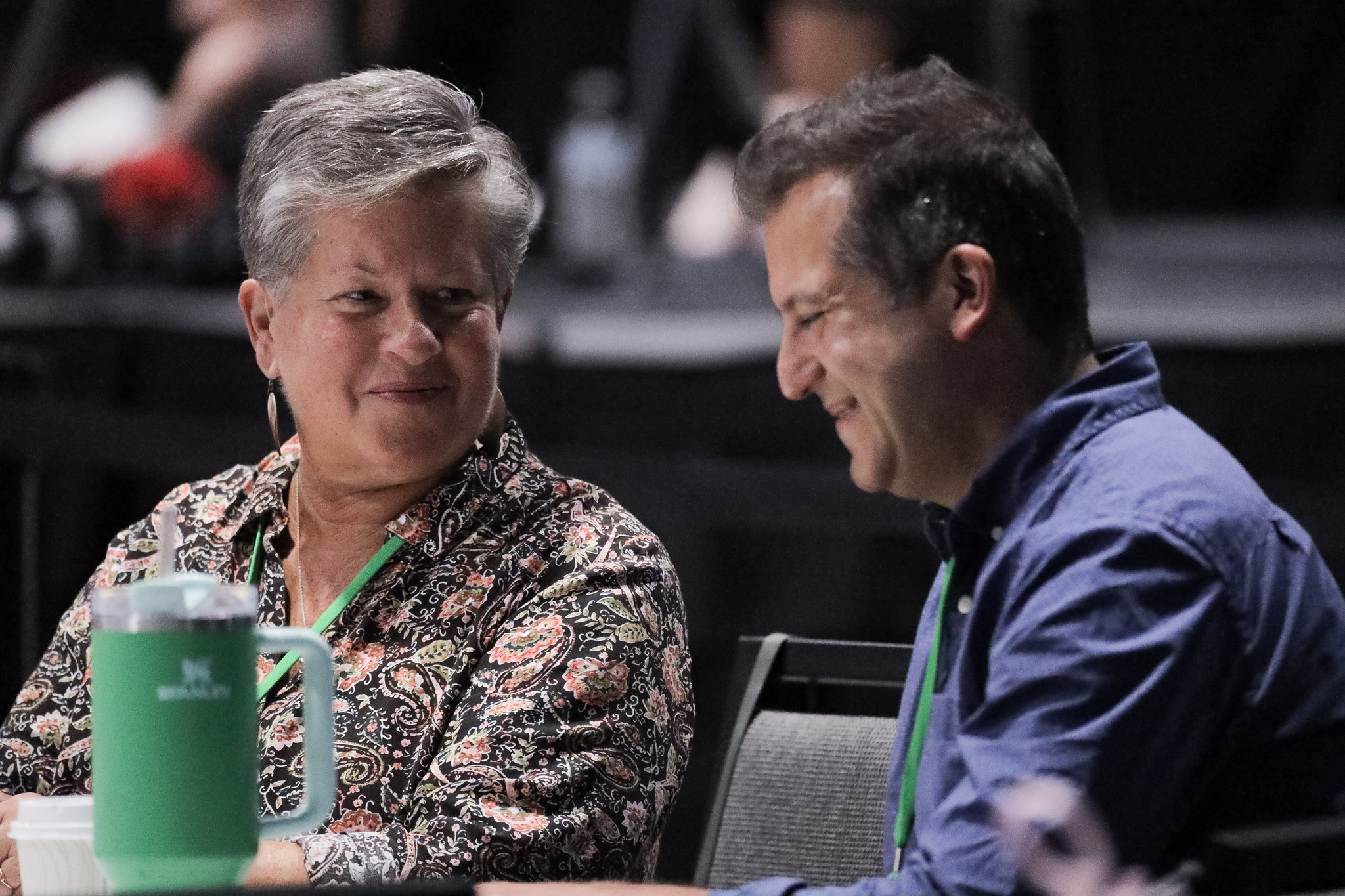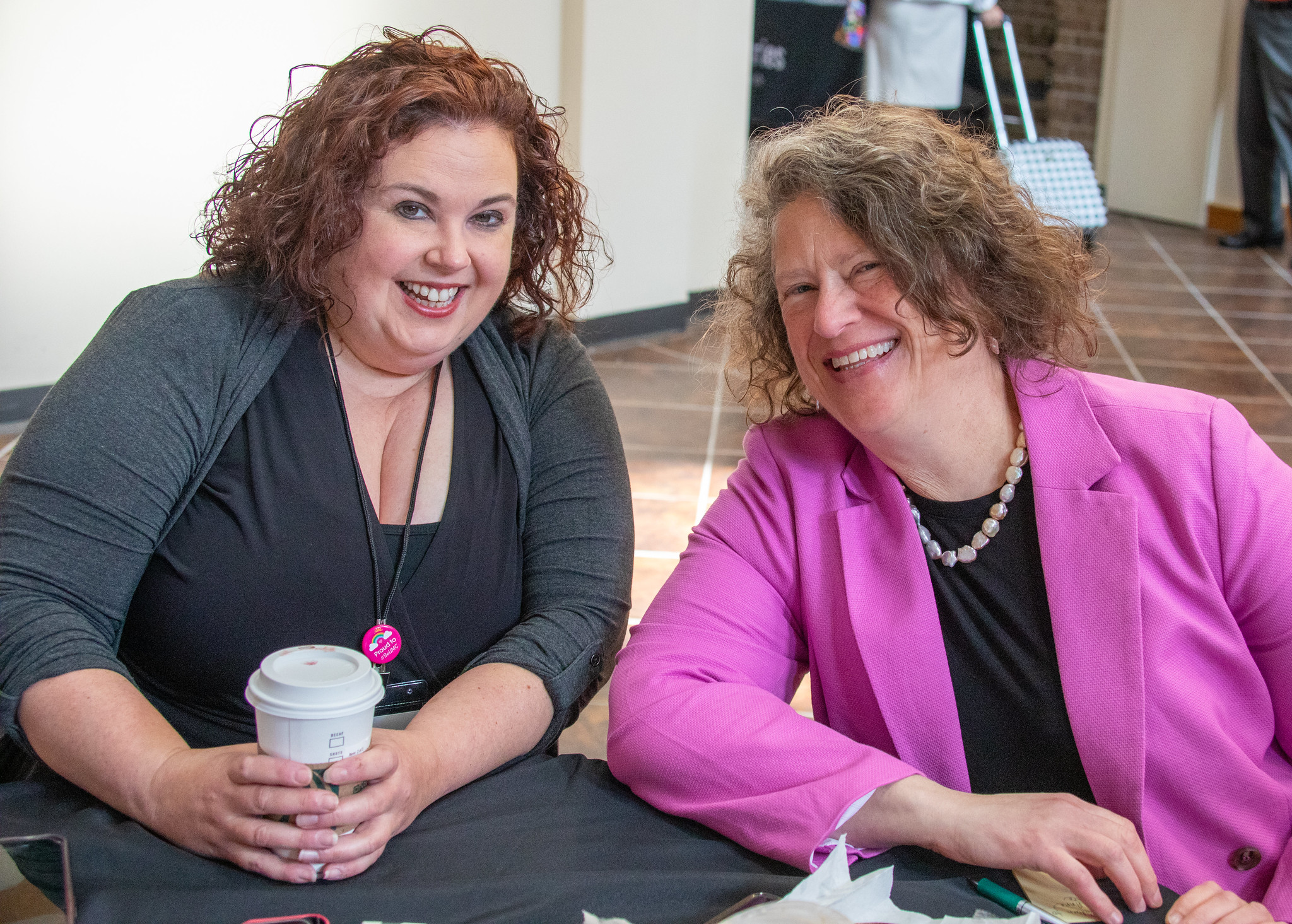
General Conference
United Methodist Jurisdictions Meet
The five U.S. jurisdictions gather for their quadrennial meetings July 10-13.
by Tara Barnes
All five U.S. jurisdictions gathered for their quadrennial Jurisdictional Conferences July 10-13, 2024. There they assigned bishops to their episcopal areas, established and populated jurisdiction-level committees, elected their representatives to general boards and agencies, determined annual conference boundaries, and promoted the “evangelistic, educational, missionary, and benevolent interests of the Church,” as tasked by the denomination’s Book of Discipline.
The jurisdictions include North Central, Northeastern, South Central, Southeastern, and Western Jurisdictions. United Women in Faith organizes at a jurisdictional level as well and hosts its own meetings to elect its own national board of directors.
Allocating bishops
In May 2024, the United Methodist General Conference reduced the number of bishops in the United States from 39 to 32. Seven bishops would retire, and no new bishops would be elected at the upcoming Jurisdictional Conferences. The distribution included six bishops in the North Central, Northeastern, and South Central Jurisdictions, nine in the Southeastern Jurisdiction, and five in the Western Jurisdiction. The distribution would rely on a transfer of bishops between jurisdictions. The North Central, South Central, and Southeastern Jurisdictions would each transfer one bishop, two of whom would go to the Western Jurisdiction and one to Northeastern.
Special sessions of Jurisdictional Conferences were held in 2022 to elect 13 new bishops in the United States,
But in the few weeks between General Conference and Jurisdictional Conferences, no bishop consented to move. Bishop Frank Beard in the North Central Jurisdiction announced on June 11 that he would be taking extended medical leave. In response, Bishop Robert Schnase in the South Central Jurisdiction announced his retirement on July 1.
“I feel my decision is best for our collective mission as a denomination and for the communities we serve,” he said. “I make this decision for the sake of the new church that is emerging.”
The Interjurisdictional Committee on Episcopacy, a group consisting of a clergyperson and layperson from each U.S. annual conference and elected by General Conference, on July 2 proposed, then, that the Western Jurisdiction elect two new bishops, and the Northeastern and Southeastern Jurisdiction share a bishop.
A new conference
The former Central, North, and Northwest Texas conference united to become Horizon Texas, a plan formed by the three conferences and supported by delegates to the 2024 South Central Jurisdiction Conference. The unification conference will be held Sept. 28, 2024.
This means that the United Women in Faith in these conferences will unite as well. Taking affect January 1, 2025, their unifying conference is set for Saturday Nov. 9, 2024, in Abilene, Texas. A unification transition team comprising United Women in Faith leaders from all three conferences has been working on bringing the conferences together. The team has shared some unification updates, some next steps, and some frequently asked questions if you’d like to learn more.

United Women in Faith member Nichea Ver Veer Guy chats with a fellow delegate during the 2024 North Central Jurisdictional Conference. The gathering took place July 10-13 in Sioux Falls, South Dakota. Guy was also elected to the board of directors for the United Methodist General Board of Global Ministries. Photo by North Central Jurisdiction.
Focus on racial justice
At its 2022 special session, the Southeastern Jurisdiction established a task force to study the impact of racial bias during selection of episcopal candidates. The group brought its findings and recommendations to the body to help work for a bishop election process more free of racial bias. The Western Jurisdiction established and supported a Western Jurisdiction Committee on Native American Ministries, and the North Central Jurisdiction passed a resolution to conduct a racial audit and another to help ensure the audit can be used to move the jurisdiction to be more racially inclusive.
All jurisdictions worked toward electing representatives to jurisdictional and general boards and agencies that represented the diversity of The United Methodist Church. Click on the name of each jurisdiction to see those reports: North Central, Northeastern, South Central, Southeastern, and Western.
All conferences included monitoring and reporting by their jurisdiction’s Commission on Religion and Race and Commission on the Status and Role of Women.
In addition, the Western Jurisdiction formally supported the ratification of regionalization, a worldwide restructuring plan to de-center the United States, bring more parity in decision-making, and Deanna Stickley-Miner with the Standing Committee on Central Conference Matters led a discussion on regionalization during the North Central conference, which you can watch on their July 12 livestream recording (beginning around minute 21).
Lisa Maupin, left, is a longtime United Women in Faith member and delegate to the 2024 United Methodist General Conference and South Central Jurisdictional Conference. She served as chair of nominations for the South Central Jurisdiction United Women in Faith, and is the lay leader of the Great Plains Conference. Photo by Rodney Steele.

Women uplifted
The Western Jurisdiction elected Kristin Stoneking and Sandra Olewine as its new bishops. These elections moved women to become 53 percent of active bishops in the United States, with 17 women bishops and 15 men per the General Commission on the Status and Role of Women. Women are now 33 percent of all active bishops in The United Methodist Church.
In addition to being voting delegates, several United Women in Faith members were elected to jurisdictional committees and general agency boards.
Other highlights include lay addresses by United Women in Faith leaders Lisa Maupin and Darlene Alfred, lay leaders of the Great Plains and Central Texas Conferences, and South Central Jurisdiction United Women in Faith President Ellen Lipsey’s report to the jurisdiction. You can see Ellen’s report at minute 48 and Lisa and Darlene at hour three of the South Central Jurisdiction’s livestream recording for July 11. You can also read about Lisa and Darlene and other United Women in Faith members who served as General Conference delegates on our General Conference blog. This is exclusive content for members, so be sure to sign up to read about how United Women in Faith equips and inspires leaders!
In the Southeastern Jurisdiction, United Women in Faith program advisory group member Karen McElfish took time to share about the climate justice legislation that passed General Conference and encouraged delegates to start Creation Care programs in their annual conferences.
Every day United Women in Faith members inspire, influence, and impact their churches and communities. Those who have answered the call to leadership in The United Methodist Church have made their presence known, and our church is blessed for it.
Tara Barnes is director of denominational relations for United Women in Faith.
Cover photo by Mark Doyal/Michigan Conference.
Episcopal assignments
North Central
Dakotas and Minnesota: Lanette Plambeck
East and West Ohio: Hee-Soo Jung
Indiana: Tracy Smith Malone
Iowa and Illinois Great Rivers: Kennetha Bigham-Tsai
Michigan and Illinois Great Rivers: David Bard
Northern Illinois and Wisconsin: Dan Schwerin
Northeastern
Baltimore-Washington and Peninsula-Delaware: LaTrelle Easterling
Eastern Pennsylvania and Greater New Jersey: Cynthia Moore-Koikoi
New York and New England: Thomas Bickerton
Upper New York and Susquehanna: Hector Burgos
West Virginia: Debra Wallace-Padgett (shared with Southeastern Jurisdiction)
Western Pennsylvania: Sandra Steiner-Ball
South Central
Arkansas, Oklahoma, Oklahoma Indian Missionary: Laura Merrill
Great Plains: David Wilson
Horizon Texas (Central + North + Northwest Texas): Ruben Saenz
Louisiana: Dolores Williamston
Missouri: Robert Farr
New Mexico: Carlo Rapanut (shared with Western Jurisdiction)
Texas and Rio Texas: Cynthia Fierro Harvey
Southeastern
Alabama-West Florida and North Alabama: Jonathan Holston
Florida: Tom Berlin
Holston: Debra Wallace-Padgett
Kentucky and Tennessee-Western Kentucky: David Graves
Mississippi: Sharma Lewis
North Carolina: Connie Shelton
North and South Georgia: Robin Deese
South Carolina: Leonard Fairley
Virginia: Sue Halpert-Johnson
Western North Carolina: Kenneth Carter
Western
Alaska, Oregon-Idaho, and Pacific Northwest: Cedrick Bridgeforth
California-Nevada: Sandra Olewine
California-Pacific: Dottie Escobedo-Frank
Desert Southwest: Carlo Rapanut
Mountain Sky: Kristin Stoneking

